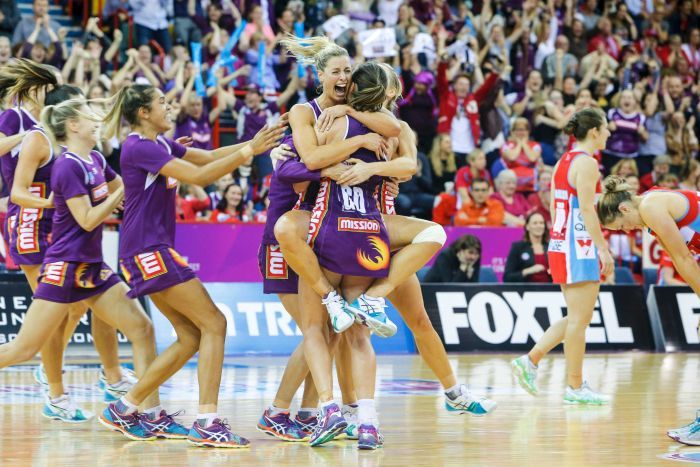
The challenge is nothing new for those in charge of Australian sport. Fragmenting audiences and a rapidly-changing broadcast model mean individual codes must habitually offer die-hard fans, would-be followers and vitally, sponsors and partners, new and digestible “products” and variants on the traditional.
Fresh, it seems, is best.
One of the richest codes in the land, the AFL, gets it and – whatever your thoughts on the format – is looking at AFLX. It is also investing heavily in the women’s game. Cricket has Twenty20. And netball is no different.
While the game’s governing body, Netball Australia, ultimately chose not to introduce any major new rules in the inaugural season of Super Netball, it looked closely at the highly contentious two-point shot. It did introduce several tweaks to improve the “spectator experience”.
With Fast5, a five-a-side hybrid version with radically different rules, netball already has its second offering, though. Many critics of mooted changes to “real” netball point to Fast5 as the “home of the extreme”.
This weekend, that extreme will be on show, as Melbourne hosts the two-day Fast5 Netball World Series.
One of the game’s most exciting young players, 25-year-old South Australian Kate Shimmin, will represent Australia this weekend. She agrees with netball bosses that the game must evolve to survive and says the netball fraternity needs to be receptive to potential change, to ensure it continues to thrive in an increasingly cluttered sporting landscape.
“I am absolutely open-minded to rule changes,” says Shimmin, who was made a Diamonds training partner this year. “The game needs to develop for netball to survive.”
Fast5 was invented less than 10 years ago and includes teams of five instead of seven, without a wing attack or wing defence, rolling substitutions, shorter games, three scoring zones, with goals worth one, two or three points and a “power play” quarter, where points scored are doubled. Centre passes are also treated differently, with the ball given to the team which didn’t score the last goal, not alternated, as is normally the case.
Like cricket’s Twenty20, Fast5 is billed as fast and fan-friendly, with neon uniforms, pyrotechnics and loud music. It’s also seen as a proving ground for possible changes to the traditional form of the game, played in the Super Netball league and around the world.
The Fast5 World Series – contested by Australia, Jamaica, England, New Zealand, South Africa and Malawi – was also held in Melbourne last year. Nearly 12,000 attended over two days at Hisense Arena and 1.4 million people watched on TV.
Shimmin, an athletic defender, “absolutely loves” the Fast5 format. She happily embraces what traditionalists regard as revolutionary.
“I love how you have to be really quite smart in this format and use them [the different rules] to your advantage. I love the idea of power plays and how you can best use that to your advantage, then having to work out strategies to compete against their power play.
“When it comes to the three-point aspect, you have just got to use your own smarts, be quick and think on the spot. It’s so fun. We are getting smarter and smarter at this format and we’ve developed lots of strategies, so I’m so excited to get out there.”
As a sporting “product”, Fast5 works, she says. “Spectators want something quick and easy. It’s something different and compacted into one weekend, not drawn out. Last year’s event in Melbourne was spectacular.”
Shimmin says Fast5 affords players a chance to show a bit of flair. “It’s up to the players to make it fun for the spectators, too. We get to show our own personalities and put our own little twist to it.”
The format may be different, but the honour of wearing green and gold remains the same, Shimmin says. “We’re playing for our country and that’s not something we take lightly. It’s the greatest honour you can have.”
The Australian team, coached by West Coast Fever’s Stacey Marinkovich and captained by 24-year-old Kate Moloney, who recently made her national debut in the third Constellation Cup test in Adelaide, is desperate to win the Fast5 crown for the first time. New Zealand have won it six times – but come into this tournament without superstar shooter Maria Tutaia, who is known for her long-range prowess.
“We are on a mission to take home gold this time,” Shimmin says. “We just need to be fierce. We need to be ready to mix things up, if things aren’t working.”
[“source-theguardian”]
